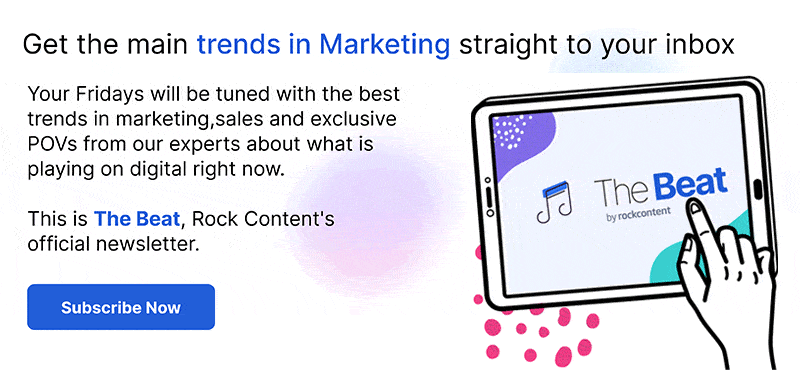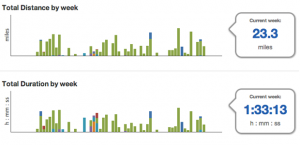A survey published by IAB Europe on programmatic advertising in 2022 showed that 63% of advertisers surveyed said third-party data is currently their preferred type of information source, increasing demand for “high-quality third-party audience data” by 25% from 2020 to 2022.
Amid growing concerns about privacy laws and the end of third-party cookies, first-party data appeared to be the most coherent path for brands to continue investing in and offering a personalized experience to their customers according to the new “rules” of the advertising world.
However, the reality is a little more difficult than expected. According to the IAB report, “while 2021 showed that first-party data was the top priority for advertisers, agencies and publishers in 2021, it now ranks third behind secondary data (the most popular priority averaging 57% with agencies leading at 60%) and third parties at 49%.
This result may have been motivated by some factors that deserve attention, including financial expenses and legal concerns with the control and treatment of the primary data collected.
The collection and treatment of primary data is a multidisciplinary effort in organizations that involves more than one sector in favor of activating this data, since even if these data are, in principle, available, they will hardly be refined and ready to be used.
Thus, the costs for this process to happen efficiently is pointed out as one of the main barriers in relation to programmatic investments. In addition to, of course, a concern to ensure a qualified team with the necessary skills to fulfill the operational reporting and analysis functions that this data processing model requires.
But there’s no way out. In a privacy-first world, first-party data is the safest way to keep generating data without invading people’s privacy.

With the end of third-party cookies, brands will have to readjust
Even with legal and financial limitations, and with the preference of Marketing professionals for third-party cookies, the market will have to adapt to the new advertising standards, as Google will soon start banning this practice on its servers.
The end of third-party cookies is inevitable and has been announced for quite some time. Browsers such as Mozilla Firefox and Apple Safari have already eliminated them from their browsers and Google plans to ban them altogether by 2024.
This marks the beginning of a new era that prioritizes data privacy as one of the demands of online consumers and the so-called “privacy revolution,” which begins with the enactment of the General Data Protection Regulation (GDPR) and the LGPD.
But what exactly are third-party cookies?
Before we continue to delve into this topic, it is essential that you understand what third-party cookies are and how their death can impact your strategy.
Surely you’ve been through the following situation: you enter a news site, for example, and an ad, which does not belong to the site, appears on your screen. And even if you jump to other websites, the ad keeps appearing in your browser.
Well, that’s because of third-party cookies.
Third-party cookies are all information made available by other websites, which do not own the domain, and record and share statistics on behaviors, preferences and habits of consumers from different channels on the internet.
Websites typically use third-party cookies because they help brands reach customers and allow advertisers to see touch points they have with consumers, making it easier for companies to better understand who accessed their websites, the profile of the audience that converted to ads and their behavior online. In this way, third-party cookies allow for more targeted advertising.
But how can we increase consumer privacy while ensuring the performance of advertising campaigns?
That’s where one of the protagonists of this story comes in: the first-party cookie.
Basically, first-party cookies are information collected directly by the company that uses them. A very common example is when a website asks for your name and email in exchange for content of interest to the consumer, such as access to an e-book or infographic.
This information can also be generated through Marketing campaigns, surveys, social media and others. The main feature of this data model is that consumer information is collected from the company’s channels that will eventually use it.
This strategy ensures more reliability and confidentiality for the data collected. It’s with this in mind that companies like Google plan to increasingly encourage brands to use first-party cookies as their primary resource for gathering consumer information.
With interactive content, the process of collecting and analyzing first-party data becomes much easier.
Google takes action to encourage brands to use first-party cookies in their strategies
Google announced that it will support publishers’ own cookies so that there is control and choice when implementing monetization strategies that best meet the needs of the business.
This means that Google will help brands leverage website monetization and increase the emphasis on first-party data relationships as a way to encourage companies to use first-party cookies for ad personalization.
This, for sure, is a measure that promises to improve the lives of marketers with these changes in the world of online advertising.
While companies still have time to adapt to these privacy measures, it’s important that you start designing your digital strategy without relying on third-party cookies.
First-party cookies can be a good alternative for your company to start producing more original content, investing in different ways of collecting data that generate a real connection with your consumers and strengthening a beneficial relationship for both parties.
By collecting primary data, companies will be able to have greater control over the data collected and can maintain the integrity of this information. In addition to complying with the standards of the new online advertising rules, preventing future headaches related to non-compliance with GDPR.
Do you want to continue to be updated with Marketing best practices? I strongly suggest that you subscribe to The Beat, Rock Content’s interactive newsletter. There, you’ll find all the trends that matter in the Digital Marketing landscape. See you there!
2024 State of Marketing Report
Your golden ticket to crush your goals with data-driven insights!
2024 State of Marketing Report
Your golden ticket to crush your goals with data-driven insights!








